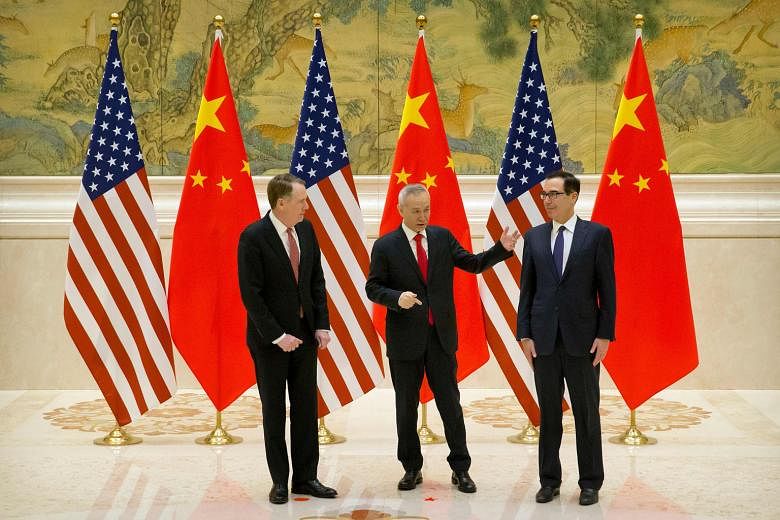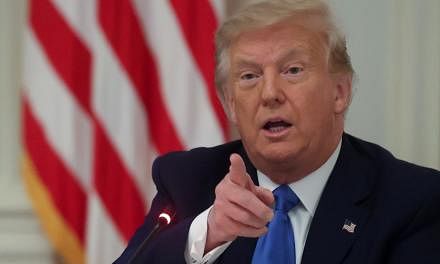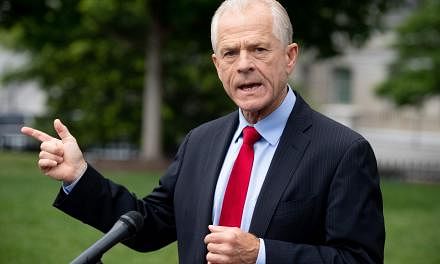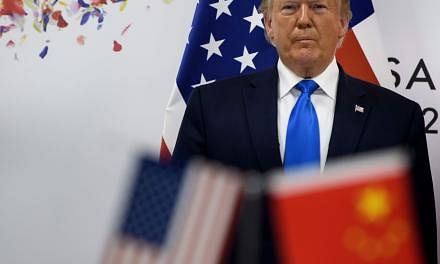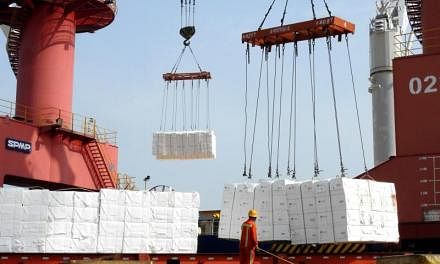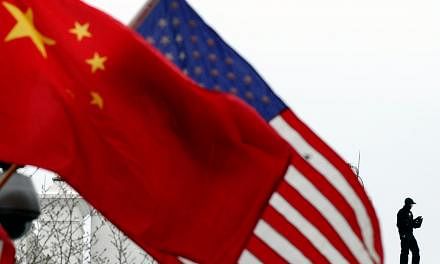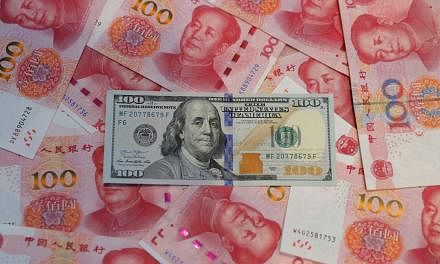WASHINGTON • US and Chinese officials resume high-level trade talks this week as they close in on a deal that could just be the first step in the long road to economic peace.
United States President Donald Trump's top trade negotiator Robert Lighthizer and Treasury Secretary Steven Mnuchin are due to visit Beijing today and tomorrow, while China's top negotiator, Vice-Premier Liu He, plans to travel to the US the following week.
The burst of diplomacy suggests both sides remain determined to reach an agreement that would avoid any escalation of the eight-month trade war that has seen them impose duties on US$360 billion (S$487 billion) of imports by the two sides.
In a radio interview this week, Mr Lighthizer said he wants to get a deal, but he's "not necessarily hopeful" one will happen.
"We're working on it," he told National Public Radio. "If there's a great deal ... we'll get it. If not, we'll find another plan."
US negotiators have voiced concern that China is backtracking on earlier pledges, while officials in Beijing have shown resistance to proposals that they see as one-sided.
Plans for a meeting between Mr Trump and Chinese President Xi Jinping to finalise an agreement have been pushed back by at least a month to late April, at the earliest.
"The President is desperate for a deal," said Mr Clark Packard, trade policy counsel at Washington-based think-tank R Street Institute. "I don't think he wants to go into 2020, running for re-election, without something here."
But it is looking increasingly doubtful that the ideal scenario for investors and business leaders - complete removal of the tariffs - will come to pass.
Mr Trump said last week he plans to keep tariffs on Chinese products until he is sure Beijing is complying with any deal, citing concern that China has not lived up to previous commitments.
The question of whether to roll back existing tariffs will probably be one of the final - and trickiest - issues to resolve, and it is likely some of the duties will remain in place, said Mr Tim Keeler, an attorney at Mayer Brown who served as chief of staff to former US trade representative Susan Schwab.
"Trade negotiations that are good and serious take longer than people want or predict," Mr Keeler said. "This one's taking longer than people want or predict."
Even after a deal is signed, trade relations between the two powers will likely remain tense for some time as they search for a new equilibrium in their economic relationship.
Mr Zhou Xiaochuan, the former head of China's central bank, sounded an optimistic note yesterday at an event in Boao, Hainan province, and said he believed the two sides could resolve their issues through negotiation.
Mr Trump stoked optimism about a major breakthrough late last month when he withdrew a threat to ratchet up tariffs and suggested he and Mr Xi could celebrate a deal at a "signing summit".
Since then, Mr Trump has walked away from a meeting with North Korean leader Kim Jong Un, and warned it is possible he would do the same with Mr Xi if things did not go his way.
The President told Republican lawmakers on Tuesday he will not settle for less than an "excellent deal" with China, according to Senator Marco Rubio who attended the briefing.
Some market strategists have already been counting on an extended truce, rather than a wholesale reversal of the tariffs.
In a research note early this month, Goldman Sachs economists said their base case was that any deal "would leave some US tariffs in place, potentially lifting them in stages as various commitments under the agreement have been met".
BNP Paribas echoes that view. In a note, rates strategist Laurence Mutkin and oil economist Harry Tchilinguirian predicted the negotiations would end in tariff "stabilisation", with some US duties still in place.
"We expect tensions to persist even after these deals are reached, as political leaders jockey for commercial advantage abroad and political points at home."
The two countries are still struggling to bridge gaps on substance.
Some US negotiators are concerned that China is pushing back against American demands in trade talks, according to people familiar with the negotiations.
Chinese officials have scaled back promises on key issues such as intellectual-property policies after failing to receive assurances from the Trump administration that the US will roll back existing tariffs, the people said.
Beijing has played down the chances of a currency commitment solely by China, and it has also said that any enforcement mechanism in a deal must be "two-way, fair and equal".
